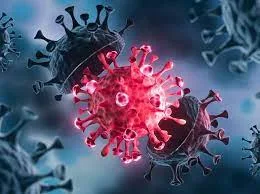Portugal is
reckoned to be number one or two of the most fully vaccinated nations in the
world, but there are serious concerns of a possible expansion of COVID-19 if
vaccinations continue to lag so far behind in Africa.
About 80% of Portugal’s
total population of just over 10 million have been fully vaccinated, according
to the national health authority, DGS.
Almost all adults
over 65 and half of young people aged between 12 and 17 have now been fully
vaccinated.
The head of Portugal’s
vaccination task force, Vice-Admiral Henrique de Gouveia e Melo, has been
widely praised for setting up a speedy campaign that has allowed Portugal to
lift most of its coronavirus restrictions.
He said during a
recent visit to a vaccination centre near Lisbon: “I'm not concerned if we are
number 1, 2 or 3 (in the world). What I want is to control the virus - to
vaccinate as many eligible people as possible so the virus doesn't have room
for manoeuvre.”
The Reuters
news agency went on to quote Gouveia e Melo as saying that Portugal started to
inoculate at the same pace as other European Union nations, but as
anti-vaccination movements grew elsewhere, Portugal speeded up the rollout and
only about 3% of the population consider themselves vaccine "deniers".
Gouveia e
Melo warned, however, that the battle against COVID-19 was not over until all
countries, rich and poor, can properly access vaccines.
"We are
over-vaccinating in richer countries and then there is zero vaccination in
poorer countries," he said. "I can't agree with that - not only due
to ethics and morals, but because it's not the best strategy and rational
attitude."
It is estimated
that in Africa less than 3.5% of the population have been fully vaccinated.
Clearly this is far short of an official target of 60%, said John Nkengasong,
director of Africa's Centers for Disease Control.
The head of the
World Health Organization, Tedros Adhanom Ghebreyesus, said at the same
briefing last week that the African continent was being "left behind by
the rest of the world" and that this would allow the coronavirus to keep
circulating.
Globally, the
biggest international vaccination programme in history has administered more
than 5.85 billion does across 184 countries, according to the data being
regularly collected by Bloomberg.
The latest rate was
more than 31 million doses administered per day. That means that enough doses
have been given to vaccinate more than 36% of the world’s population – but the
distribution has been lopsided.
As of September 16,
around 64% of the United States population had received at least one dose of a
COVID-19 vaccination, but the US continues to lead the world in total COVID
infections (41.5 million) and deaths (665,000). Around 1,900 deaths
are being reported most days.
Some scientists
have warned that COVID-19 may greatly accelerate across Africa developing
particularly virulent and transmissible variants that could spread to
high-income countries such as the US and those in the European Union.
South African
scientists have already identified and are studying a variant currently
referred to as C1.2. There are special concerns about the number of mutations
it contains and the speed at which the mutations have occurred.
South Africa’s
national Institute for Communicable Diseases has said that since being
identified in two South African provinces in May this year, C1.2 has been found
in other provinces as well as the Democratic Republic of the Congo, Mauritius,
New Zealand, Switzerland and Portugal.


No comments:
Post a Comment